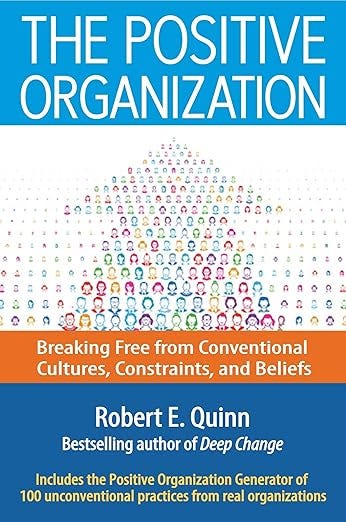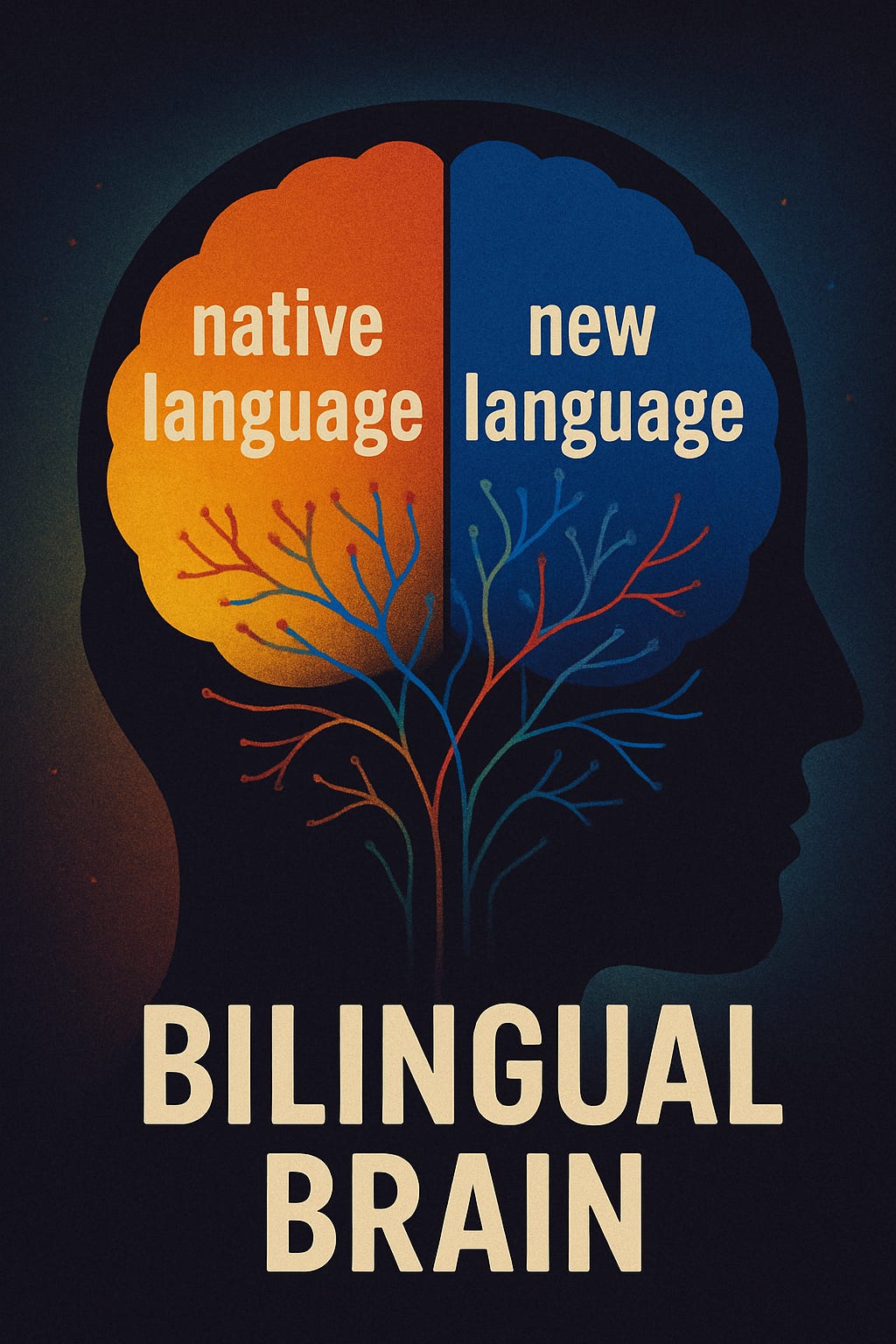I’ve been thinking a lot about the process of learning a language. Specifically, what it reveals about the kind of adult development that I support in my role as a coach and trainer when I’m working with people (especially leaders) who are trying to dismantle management hierarchies in their organisations in pursuit of more decentralised, collaborative ways of working.
When I moved to Barcelona nearly nine years ago, I naively assumed I’d master Spanish (and later Catalan) in no time at all. But I seriously underestimated the ‘learning pains’ I would experience, especially when speaking Spanish outside the safe bubble of lessons with my teacher.
This year I’ve started to lead short workshops for self-managing organisations in Spanish. It’s been humbling and extremely uncomfortable to be a beginner again. I can also feel a certain amount of shame since, as a native English speaker, I have been blind to the privileges that come with this for much of my life – travelling the world and relying on others to switch to English in order to make it easier for me.
But as I allowed myself to share my fears with my trusted peers, I discovered there was fertile ground for personal development here. And it went much deeper than just improving my Spanish – my colleagues helped me see that conquering this fear and harvesting my learning from this experience would help me not just improve my Spanish, but grow and improve as a coach, trainer and human being in whatever language I choose to speak.
And there is a beautiful parallel here for all of us that are exploring new ways of working. I’m reminded of something I read in the book ‘The Positive Organisation: Breaking Free from Conventional Cultures, Constraints, and Beliefs’ by Robert Quinn. He talks about how leaders in organisations generally have a ‘conventional map’ – a set of (unconscious) beliefs and assumptions about people that shapes their behaviour and way of being, and therefore the culture of their organisation.
However, he believes that there is another map, a ‘positive map’, which enables us to think in more complex ways about our organisations and see new possibilities. And here’s the part which connects us back to this idea of learning a language:
“Acquiring this positive mental map is a lot like becoming bilingual. It is a journey, not an instant transformation. It involves taking risks, failing your way forward, and having the confidence to keep trying. Learning a new language doesn't mean forgetting your native language; rather, it adds a greater capacity to communicate and learn.”
I share this analogy often in the courses I facilitate, where I’m asking people to practise new abilities like asking coaching questions (instead of being on ‘advice autopilot’) or generative listening (instead of listening to evaluate or problem-solve). I tell them: we were never taught these skills at school or in our workplaces. The dominant paradigm has trained us and rewarded us for other abilities, like being analytical, responsible, fast, smart. That is our native language, the one we have been brought up speaking from a young age. And now we are learning a new language, and we are discovering a whole new vocabulary and grammar. It feels strange in our mouths. It doesn’t sound natural. It feels uncomfortable. We feel incompetent. We want to switch back to our native tongue, where we feel capable and at ease.
For many managers (or former managers) in my trainings, they can feel vulnerable extremely fast. “What is my value if I’m not solving people’s problems? What worth can I possibly have if I’m just asking questions and listening?” To practise slowing down, or allowing moments of silence, can feel like sitting in the fire for them. Or for the empathetic managers who have spent their careers clearing the path for their employees, to practise giving candid feedback or placing the responsibility with someone (instead of offering a solution or a way forward) is like asking them to eat glass.
Frederic Laloux, author of ‘Reinventing Organisations’, once (half) joked that organisations embarking on self-management journeys might need to create support groups for middle managers. Spaces where they could share how confronting it is to totally rethink their roles and how they contribute, and to give up the dopamine hit of being the one that solves, that rescues, that decides.
In my case, I have begun to realise how much of my self-identity is built on a need to be smart. When I facilitate in English, I enjoy the ego rush of being able to quote an interesting book, or cite an impressive example of a radical practice or self-managing organisation that no one has heard of. I have worked for years to amass these examples and to be able to recall them at will. And I delight in finding precisely the right words to distinguish an idea – even greedily offering people two or three options to choose from. I like words.
So standing in front of a group and trying to talk about a concept that I’ve elucidated thousands of times in English, and discovering that in Spanish, instead of a vast library of words to choose from, I have just one children’s book with some torn out pages available to me, is exposing to say the least. Suddenly I am a living embodiment of the social media acronym ‘ELI5’ (Explain Like I’m 5), except I’m the five-year-old, not my audience!
Practising in front of my colleagues (a mini ‘dress rehearsal’) in the week before my first workshop in Spanish, I burst into tears. I was so scared. To accomplish this task, I would have to conquer my fear of being inadequate. I would have to find a way of being a ‘beginner’, and a way to let go of my perfectionism. There was no magic pill I could take that would suddenly make me fluent and grammatically flawless.
And I could also see the beautiful symmetry. I would be asking the participants in my workshops to try things – uncomfortable, unfamiliar things. They would be struggling as well. At Tuff we always share in our programmes our motto:
“It’s impossible to get better and look good at the same time. Allow yourself to be a beginner.”
What better way to role model this than to be vulnerable with my audience? They would be practising a new language (the language of bossless leadership and collaboration) and I would be practising a new language as well (Spanish). Together we would take risks, fail forward, and have the confidence to keep trying.
Tips for being bilingual (metaphorically speaking)
So here are some lessons I’ve distilled that I think are relevant for any of us trying to become bilingual in the sense of developing a new way of being, one that is more conducive to self-organising teams. (Although they also apply to learning a language in the literal sense!)
Identify your fear and the mindset that drives it – for most us, we have some kind of unconscious ‘truth’ we have created about what makes us worthy. For managers, it’s often something like ‘I add value by solving problems’ or ‘To be a good leader, I must help people’.
Create a more inspiring and helpful mindset in line with your goal – for leaders who want their teams to be more autonomous and for people around them to develop, an alternative mindset might be ‘I add value by creating a space for people to tap into their own potential and capacity’.
Be able to be in the gap – my colleague Carl Erik likes to say that mastery is being able to be in the gap between how it is and how we would like it to be. This means being willing to take risks, make mistakes, keep trying and not give up when we can’t get it right straight away. Find ways to be self-compassionate, to give yourself grace, to be in a process that is non-linear.
Generate opportunities to practise – I always tell people on my courses that new ways of working and being together won’t happen by accident. We have to create opportunities to practise these new abilities and conversations, which will not be comfortable or convenient! But practising makes all the difference.
Embrace the growth pain – I often return to another idea from Frederic Laloux who talked about the personal development process in becoming a ‘teal’ organisation as one that involves some ‘growth pain’. He defines this as “the pain we experience when we grow into larger, more powerful versions of ourselves.” For example, people who have worked hard to ‘climb the career ladder’ who now have to reinvent their identity in a self-managing organisation find it extremely hard at first. This is why it’s so important to explore how we can have spaces for conversations where this pain can be spoken, acknowledged, and transformed.
As for me and my Spanish, it has been very freeing facilitating in another language. Terrifying (!), but freeing. I’m very grateful to my colleagues (Spanish-speaking and otherwise) who have supported me, and to the participants in my workshops who have given me grace.
I’ve discovered that people can still feel the ‘me’ underneath the language – my intentions, my feelings, my personality. That I can be an effective coach, even if I mess up the gender of a noun or the correct tense of a verb. I have enjoyed finding creative ways to express ideas, ways that could be more powerful even than my verbose tendencies in my own language.
It has also been a great reminder to me of the benefit of venturing outside the comfort zone. If my colleagues hadn’t assured me that I was ready and capable of facilitating in Spanish, I don’t think I would ever have deemed myself ready. In fact, my personal standard of ‘ready’ is probably unattainable.
Someone once told me the story (attributed to Irish author Frank O’Connor) of a group of boys who used to play in the countryside. When they found a wall they were afraid to climb because it seemed too high, they would throw their hats over the wall so that they had no choice but to follow.
I wonder… What is the wall you have been too scared to climb? And what would it give you to throw your hat over this wall?
“You’re always practising something. So you’re either practising upholding the world as it is, or you’re practising shifting into the world as you want it to be...What each of us practises at the scale of our individual lives is what is then possible for us at a large scale.”
– adrienne maree brown






